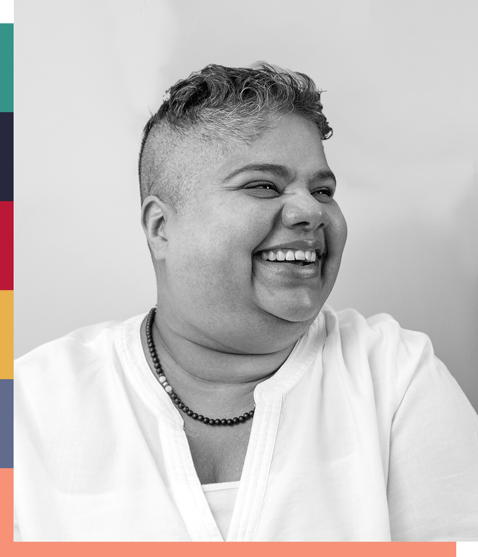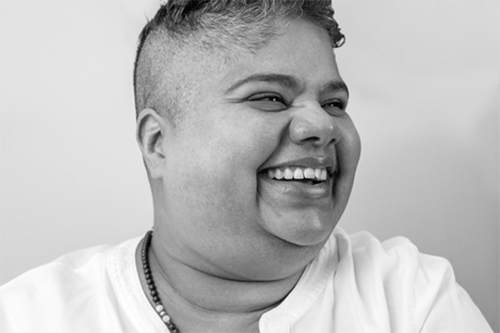
Credit: E. Farninago (2019)
Can you tell us a bit about yourself and how you came to the child welfare sector?
Like everyone else, I have various parts of my identity that inform who I am and the lens that I bring to my work in child welfare. I’m originally from India but was actually born on a tiny island in the Middle East called Bahrain. I moved to Canada when I was a teenager and am now a proud Canadian citizen. I’m also a mother, a social worker, a university lecturer, and an equity and inclusion consultant and trainer. So, being a racialized, immigrant, queer woman with invisible disabilities has informed my intersectional approach to child welfare and my passion to do this work.
I started working in child welfare after finishing my Bachelor of Social Work. I thought I would only stay for two years and then I’d move on to try something else. But now, 20 years later, here I still am. I continue to love this field, as I get to humbly walk alongside children, youth, and families every day as they journey through some of the biggest challenges and barriers of their lives.
What is “Practice Transformation”?
Practice Transformation is ultimately about achieving better outcomes for the children, youth, and families we work with across Ontario. It’s about focusing on Truth and Reconciliation and interweaving trauma informed practices with an intersectional equity lens with all that we do. I realize that’s a lot of complex jargon. So simply put, it’s about ensuring that our work and child welfare services are rooted in equity, and in ensuring that every child and youth has the same opportunity to thrive, no matter who they are, where they are from, or what their circumstances are in life.
Why does child welfare practice need transforming?
Child welfare practices are built on colonial frameworks, and this has resulted in a disproportionate number of Indigenous and Black children and youth in the child welfare system. Although there is good work happening throughout the province toward changing existing practices, we have to continue to work on ensuring that all families have access to equitable services and supports, no matter where they live. We work with the most marginalized families in our society: families who experience many barriers to services and supports both individually, organizationally, and systemically. So, the idea is that through transformation, all Ontario families will receive the highest level of service that is inclusive of their identities, cultures, and customs and that is both trauma- and evidence-informed.
What inspires you to do this work?
The children and youth I serve inspire me to do this work every day. During my time in the sector, I have met so many strong, gifted, resilient, and loving children and youth who have overcome countless barriers in their young lives – all of which were out of their control. These young people have bravely shared what it’s like to work with us and how we can improve. So, they are the reason I do what I do. To make things better for them.
Growing up where I did, we didn’t have a child welfare system. And that showed me there is a need for our work, but also that it has to be done in a way that does not further colonize people and harm their identities. I’m honoured to play a part in leading the Ontario child welfare sector further toward those goals.
What are the biggest challenges the child welfare sector faces in this work? How might we overcome them?
The biggest challenges facing the child welfare sector, in my humble opinion, is the challenge of hope and optimism. We have to be the holders of hope for ourselves and the children and youth that we serve. Because without hope for something better, we’ll remain stuck in our usual ways of doing the work. Meaning, the colonial ways. In order to transform, we have to move from a problem-saturated mind-set to one of possibilities. We need to be courageous and prepared to make the bold moves necessary to change our practices and services for the children, youth, and families in our province. With hope, bravery, and innovation, I believe anything is possible.
